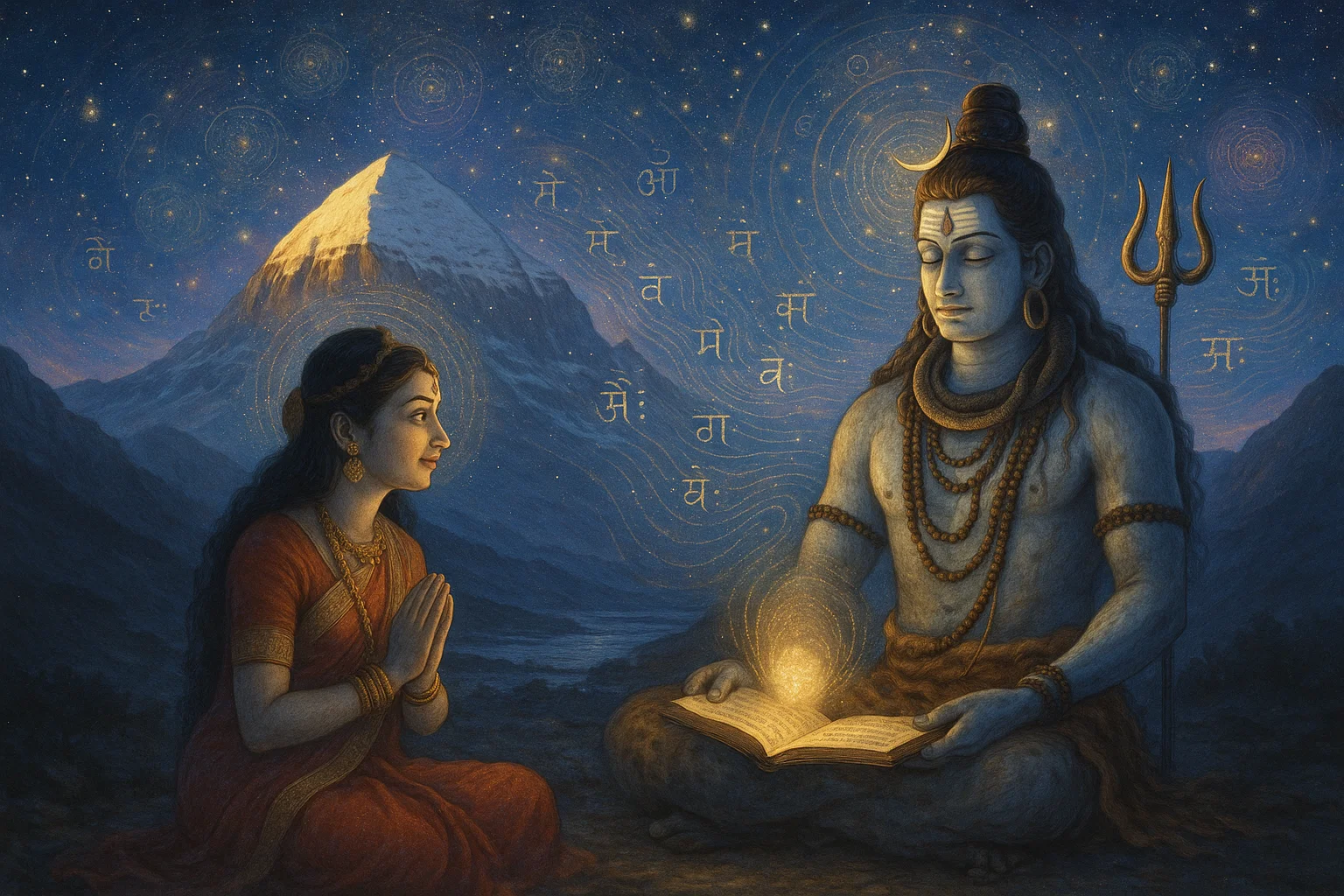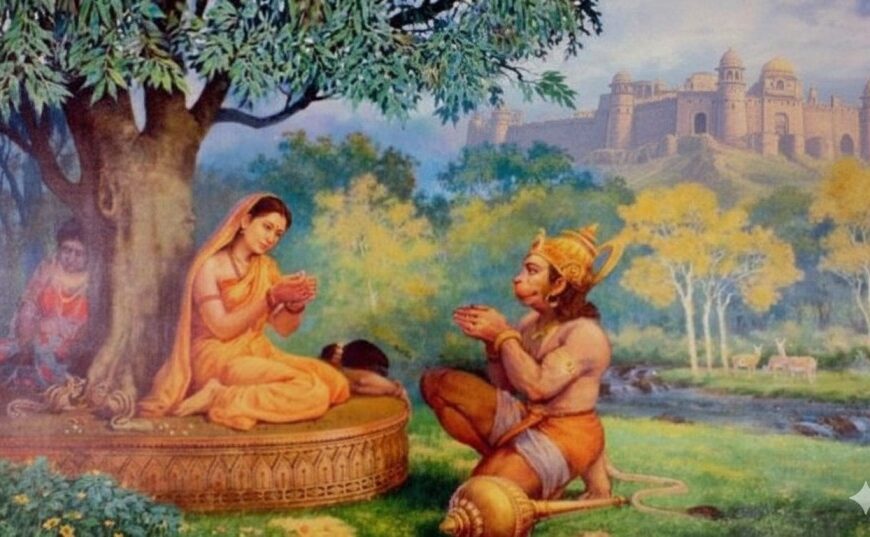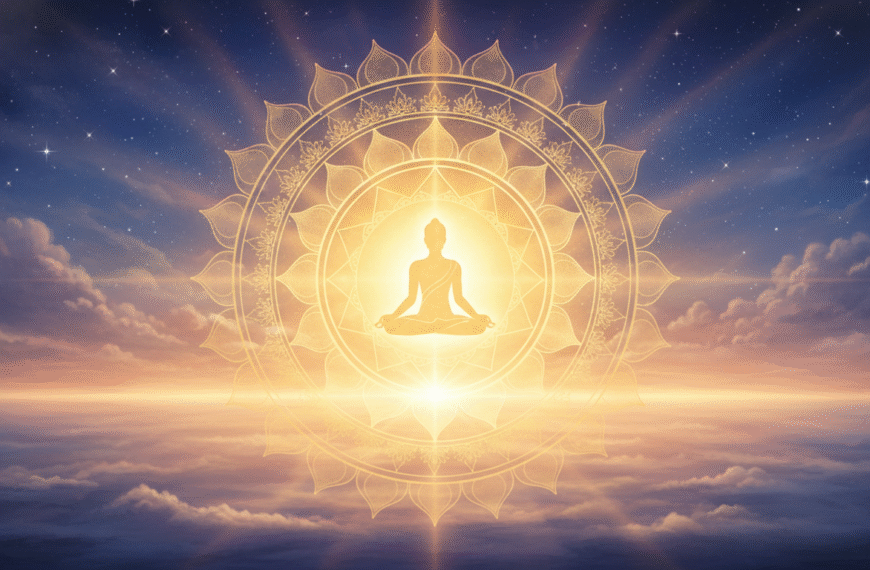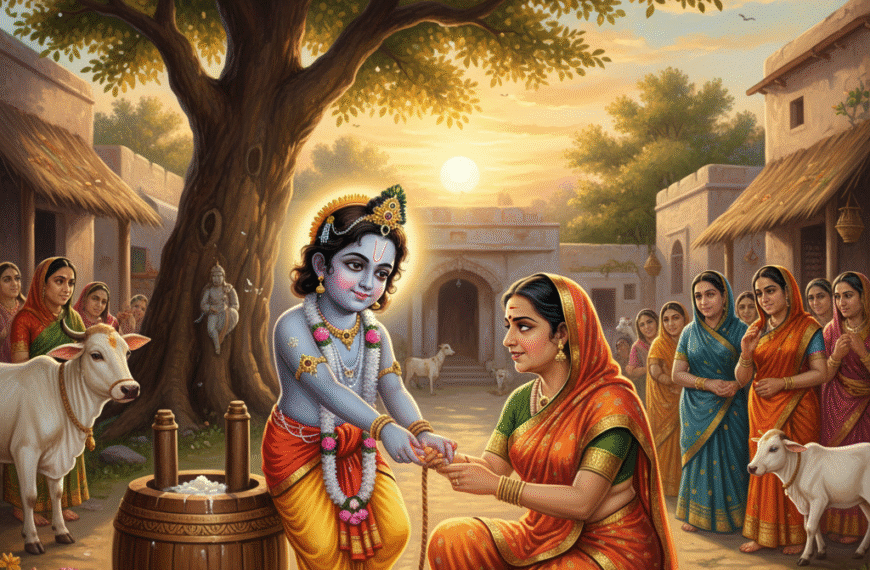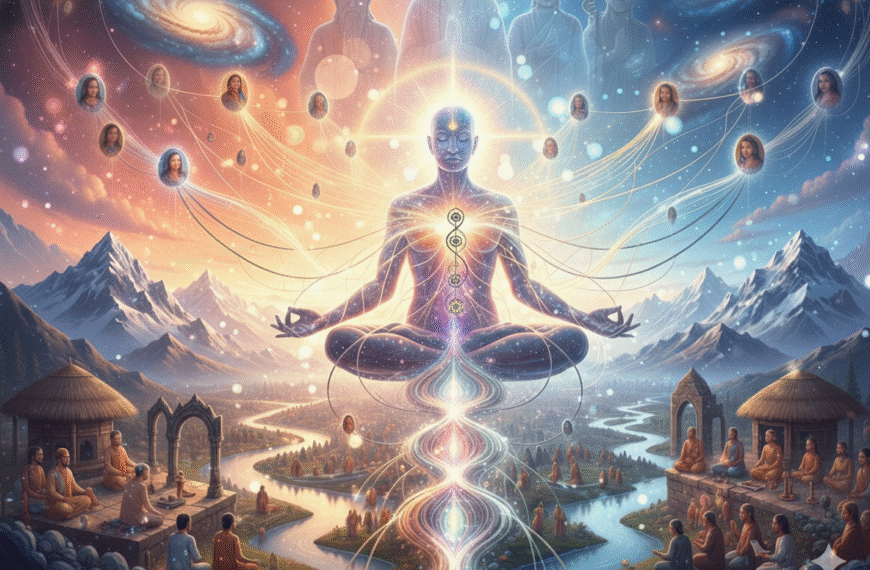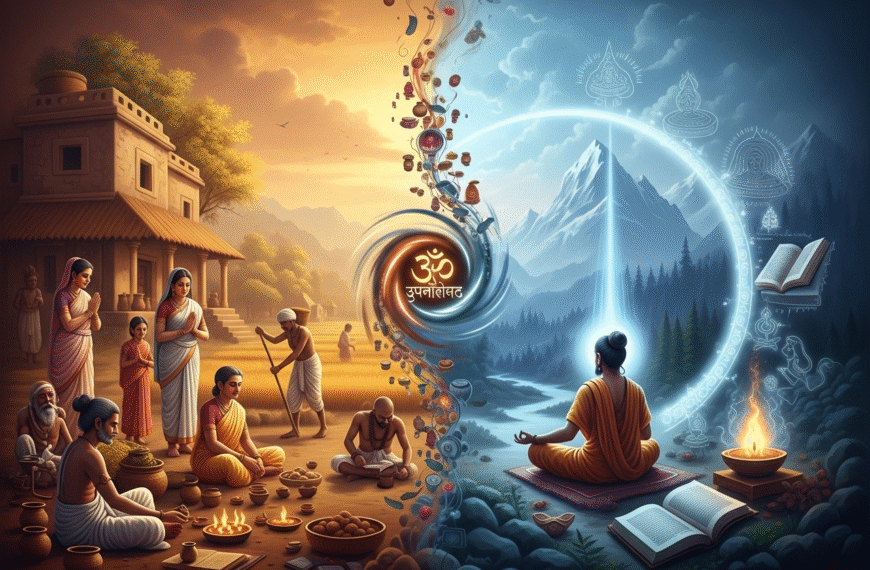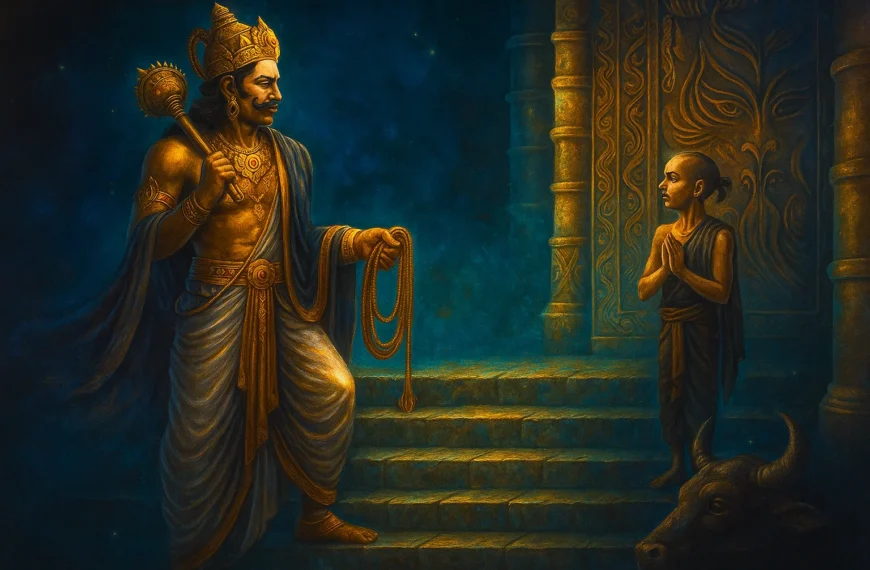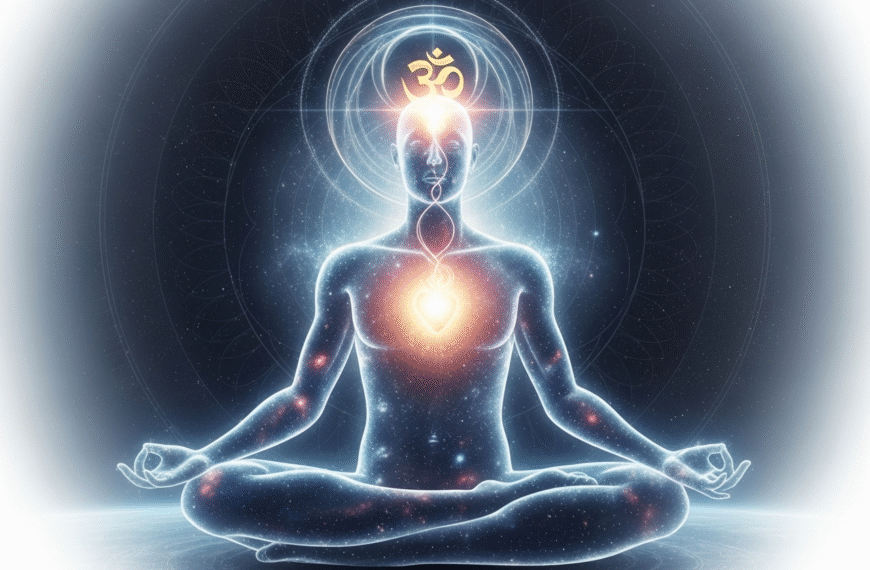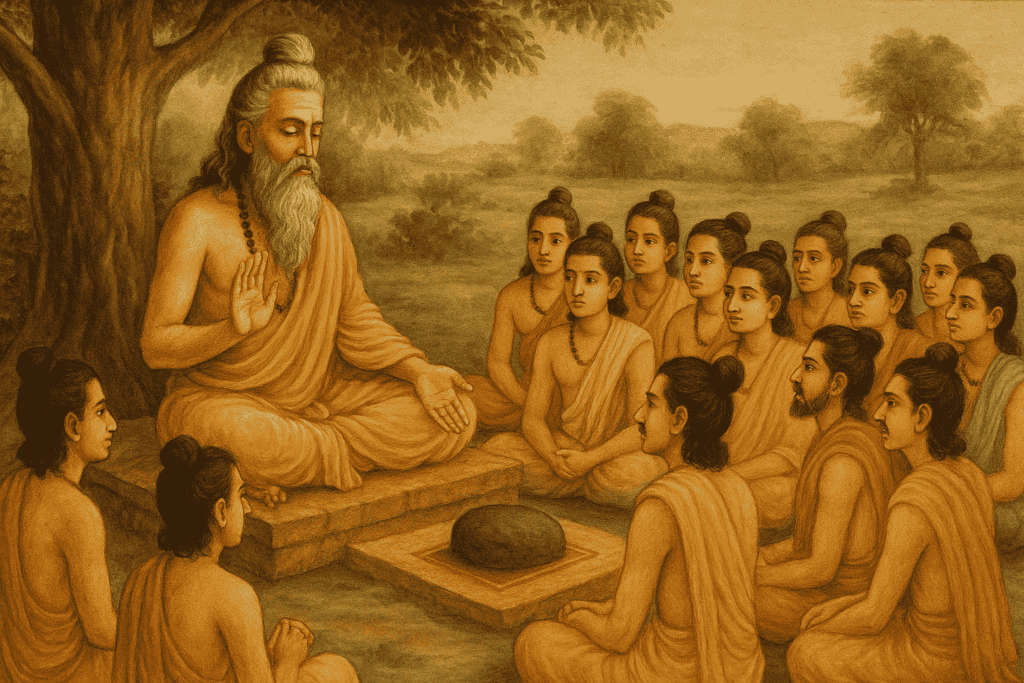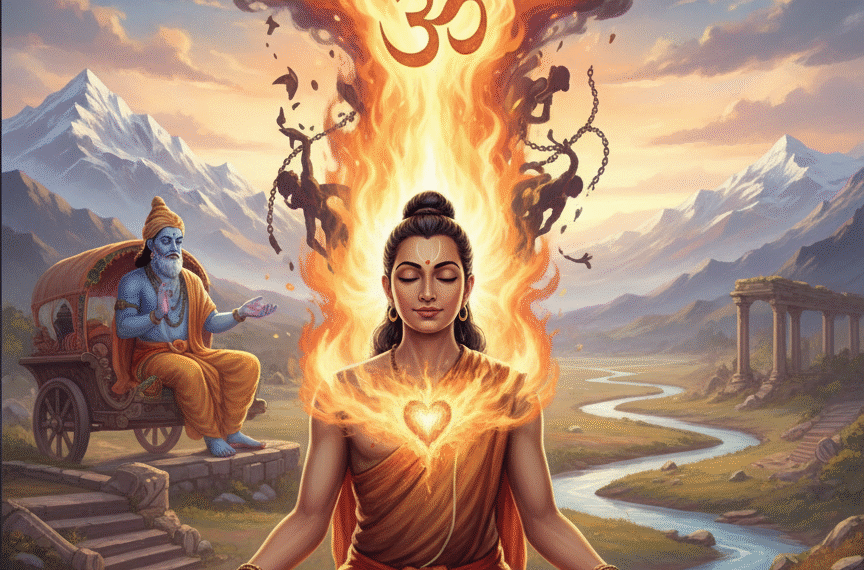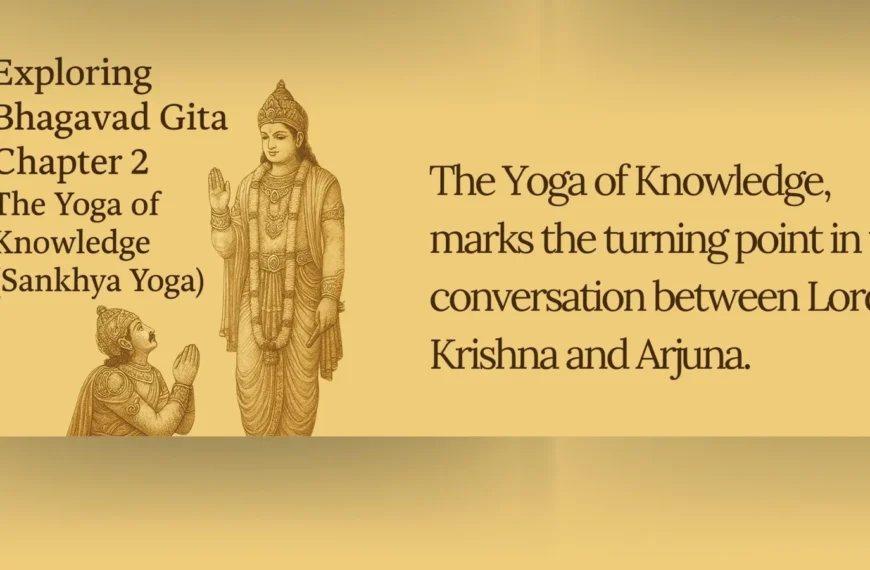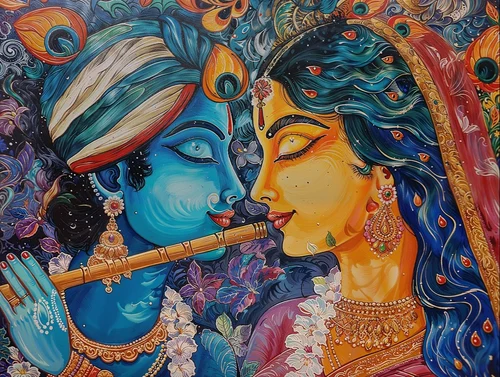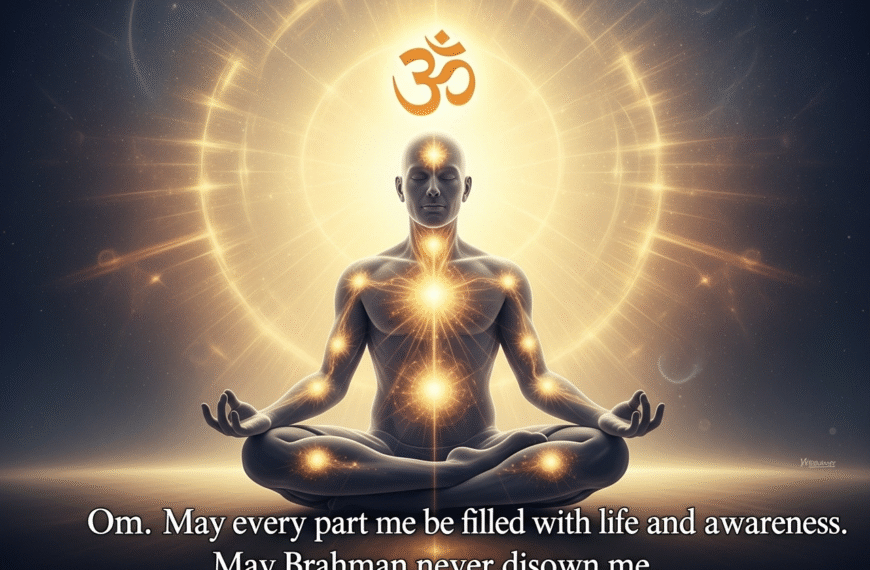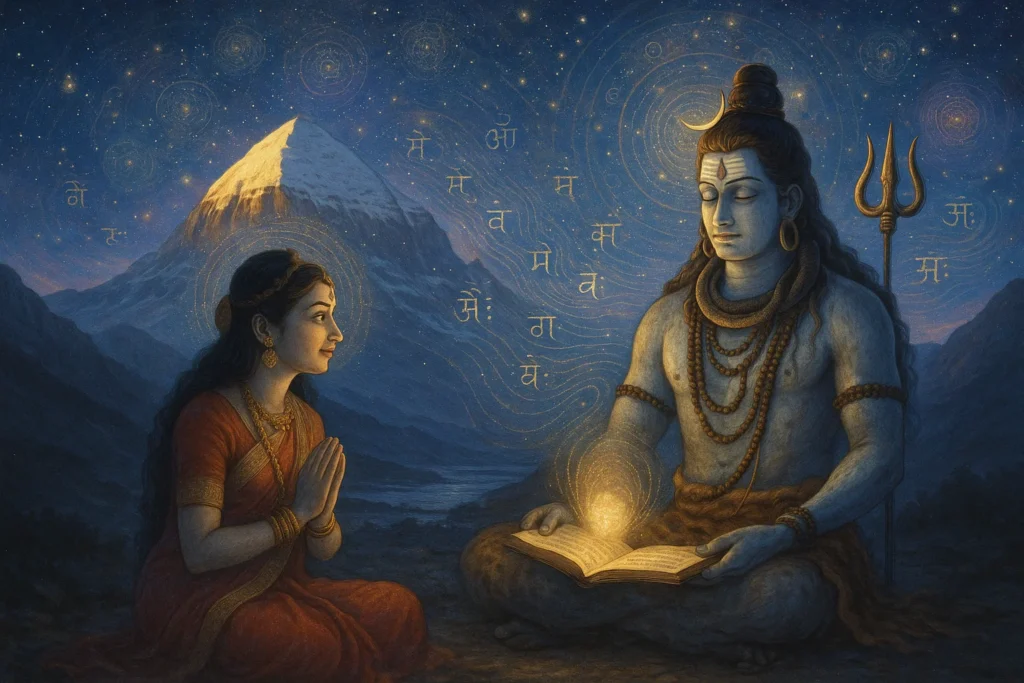
CHAPTER I
Introduction: The Alchemy of Grace and the Power of Sacred Sound
The journey into the Bhagavad Gita begins not on the field of war, but within the heart of the cosmos itself, through a dialogue between divine principles. The story is told that on the sacred Mount Kailāsa, the divine consort Pārvatī, the embodiment of devotion and inquiry, asked her lord, Parameśvara (Śiva)—the archetype of ultimate consciousness—to reveal the secret glory of the Gita.
Śiva, lost in contemplation of the Infinite, replied with a truth that echoes through eternity. “It is the Gita alone,” he explained, “that has submerged me in this ocean of supreme knowledge, rendering me holy, cleansed, and immune to all illusion.” He then shared a parallel celestial conversation: Śridevī (Lakṣmī), the goddess of grace and abundance, had once asked her lord, Viṣṇu—the sustaining force of the universe—why he, the master of all worlds, would spend aeons in silent meditation upon the cosmic ocean.
Viṣṇu revealed that in his solitude, his inner eye beholds a singular, glorious image of light—formless, indestructible, and beyond all comprehension. This light, he explained, is the very essence of Divine Knowledge, the primordial truth that Lord Kṛṣṇa gave voice to in the Gita. This scripture is not merely a book; it is the spoken architecture of the Divine, the distilled wisdom of the Vedas and all sacred lore, composed by the sage Veda Vyāsa into eighteen chapters for the spiritual liberation of the universe. It is a living embodiment of the Divine: its first five chapters are the Lord’s face, the next ten his powerful arms, the sixteenth his torso, and the final two his sacred feet. To engage with it is to stand in the presence of the Absolute.
To illustrate this power, Viṣṇu narrated a parable—not a simple moral tale, but a profound teaching on the irrepressible mechanics of grace.
Once, there was a soul named Suśarmā, a man so ensnared in the gravity of his own harmful actions that his life became a vortex of sin. When death came by the bite of a serpent, his karmic trajectory plunged him into the lower realms, and he was reborn as a lame ox. In this form, he was trapped in a prison of mute suffering, bound to a beggar who could not feed him, growing weaker until he collapsed, dying, on a dusty road. His agony was so immense that onlookers, moved by pity, prayed for his release. They offered up whatever spiritual merit they possessed to ease his passage.
Into this circle of compassion walked a harlot, a woman of the shadows who believed herself bankrupt of grace. “I know of no good I have ever done,” she confessed, “but if there is any unknown merit attached to my soul, I offer it freely for the release of this suffering creature.” At the very moment of her selfless offering, the ox died.
But this was not an end. The soul of Suśarmā was instantly reborn as a Brahmin of high standing, with full memory of his cosmic journey. He sought out the harlot and fell at her feet. “It was your grace that shattered the chains of my miserable existences,” he told her. “What supreme act did you perform to wield such power?”
Confused, she replied, “I can recall no such deed. The only constant in my home is the sound of my pet parrot, which chatters something every morning.”
Suśarmā then approached the parrot and asked what it recited. The parrot, also speaking with a flash of remembered consciousness, explained: “In my previous life, I lived in a hermitage where the disciples of a great sage chanted the first chapter of the Gita every dawn. I listened, and the sacred sounds became my own song. Captured by a hunter and sold to this woman, I continued my recitation, for it was all I knew.”
The divine revelation is this: the sacred vibration of the Gita—even when passed through the most unconscious or seemingly ‘unworthy’ of vessels—retains its absolute power to purify and liberate. A single, pure vibration of truth, passed through a parrot, offered by a harlot, can unravel aeons of karmic debt. It demonstrates that truth does not require a worthy vessel; it sanctifies the vessel it fills.
Because of this single chapter, the parrot, the harlot, and the Brahmin all ascended to the highest realms upon their deaths. The power is not in the transaction, but in the transmission of a sacred, transformative frequency.
SUMMARY OF THE CHAPTER
The Yoga of Arjuna’s Despair (Arjuna Viṣāda Yoga)
The journey to enlightenment does not begin with a vision of light, but with a descent into darkness. The first chapter of the Gita establishes a profound spiritual paradox: the most fertile ground for divine revelation is not piety, but a total and shattering state of despair.
The stage is set on the plains of Kurukṣetra. Two colossal armies, born of the same royal family, stand poised for annihilation. Arjuna, the peerless warrior and embodiment of the noble, duty-bound self, asks his divine charioteer, Kṛṣṇa, to drive him into the no-man’s-land between the forces. He wishes to survey the enemy.
But what he sees is not an enemy. He sees the face of his own history, his love, and his identity turned against him. He sees his grandfathers, his revered teachers, his cousins, uncles, and lifelong friends—all waiting to kill and be killed.
The sight triggers a complete psychosomatic implosion. Arjuna, the hero of a hundred battles, declares:
“My limbs give way, my mouth is parched dry, a tremor shakes my body, and my hair stands on end. The legendary bow, Gāṇḍīva, slips from my grasp.” (29-30)
This is the collapse of the ego-self when its entire moral and social universe is rendered meaningless. Arjuna’s arguments against the war are the desperate cries of a soul clinging to order in the face of chaos. He fears not only the sin of slaughtering his kin but the utter disintegration of society itself: family traditions will perish, lawlessness will prevail, women will be corrupted, and the sacred ancestral lines will be broken, condemning generations past and future to a spiritual void.
This is more than mere hesitation. It is Viṣāda—a profound, soul-crushing anguish that dissolves all sense of purpose. Overwhelmed by this apocalyptic grief, Arjuna, the greatest archer of his age, casts down his bow and arrows and sinks into his chariot, surrendering not to the enemy, but to his own inner devastation.
This is the critical, foundational moment of the Gita. Arjuna’s collapse is not his failure, but his qualification. By admitting the utter bankruptcy of his own strength, his own ethics, and his own understanding, he creates the sacred emptiness, the blessed state of unknowing, that is necessary for the divine word to enter. His despair is not an obstacle to Yoga; it is the first Yoga—the sacred wound through which the light of the Infinite is about to pour.
